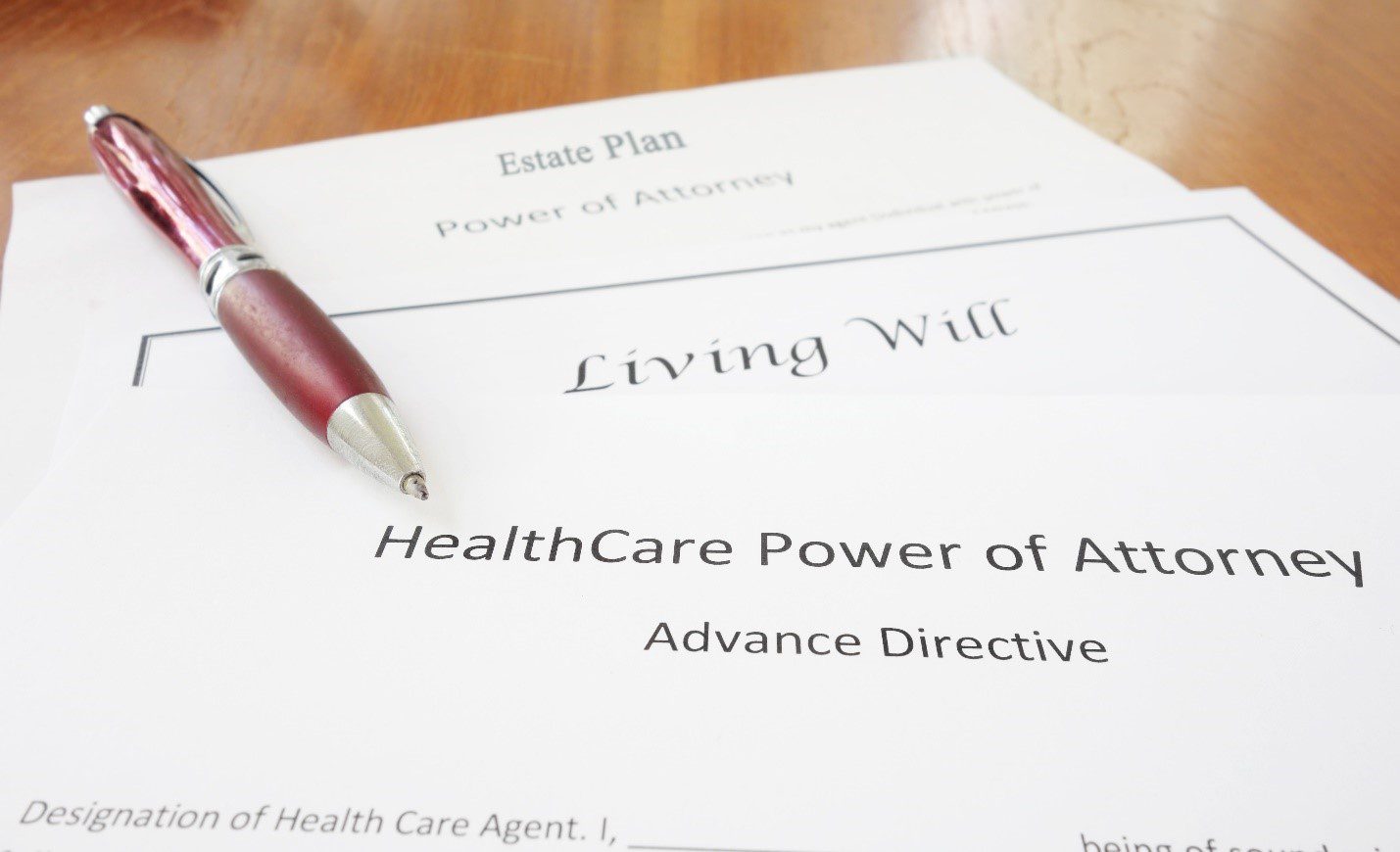Your Complete Guide to Estate Planning – CHAPTER 4
Have you been following our ongoing estate planning post series here on the blog in recent months? If so, you’ve likely noticed that much of estate planning has to do with establishing legally valid documentation that conveys your end-of-life wishes regarding your assets and property.
Did you know that there is also specific estate planning documentation that deals with your personal health and physical body? You may have heard of these advance directives, but likely have many questions. Today’s post focuses on healthcare decision-making at times when a person cannot express their wishes, how their wishes are properly documented, and why you should seriously consider establishing these instructions as part of your unique estate plan.
This may sound relatively simple, and you’ll find that do-it-yourself forms are widely available online—after all, what’s a little bit of paperwork? However, there are many different points to consider, and even modest estates can benefit from strategizing with an experienced estate planning attorney to make sure that the right documents are prepared in the right way to accomplish your goals and support your loved ones.
Are a Living Will and Advance Directive the Same Thing?
In short, yes. But there’s a little more to it than that. A living will combined with a healthcare power of attorney designation (more on that component in the next section) form the full advance directive. So, as we touched on in the previous chapter of our article series, a living will is a vital part of an advance directive (and the terms may be used interchangeably), which is essentially instructions for healthcare decision-making when a person is in a terminal condition and cannot express their wishes.
Your living will states whether you would or would not like certain types of life-saving efforts to be made in a situation where you are incapacitated and cannot tell medical personnel what you want them to do.
Establishing the document can involve some serious soul-searching and, depending on your faith, you may want to talk through certain aspects of your plan with your loved ones and a trusted religious advisor ahead of time. Be sure that any person you intend to appoint who will communicate with health care providers on your behalf will be comfortable following your instructions. Afterward, we encourage you to work with a knowledgeable estates and probate lawyer to help guide you in putting your advance directive (and any other healthcare documentation you may desire) in place. Often, standard clauses in living will forms may not be consistent with certain personal convictions, and individuals unknowingly sign directives that actually counter their faith. Don’t let this happen to you or a loved one—seek out professional guidance before you sign anything. Most importantly, after you have signed a living will or an advanced directive, openly share your wishes with your family members / loved ones so that if and when the need for the documents arises, they know what to expect.
Let us help you!
What is a Healthcare Power of Attorney?
A healthcare or medical power of attorney (POA) names a trusted loved one who would make medical decisions on your behalf in the event you are no longer able to make your own decisions. This individual would personally assure that your living will is appropriately carried out should the need arise, though this “agent” may be granted additional responsibilities if you choose.
While many people often name a spouse as their healthcare POA, it’s important to remember that if you divorce later, you will need to keep this designation updated.
I Already Have a Will. Why Do I Need a Living Will?
Because legal terminology is not always easy to understand, your will—or, the Last Will and Testament document—is not the same thing as a Living Will, which we just defined above. The names are understandably easy to confuse, and while we feel that both documents are essential to a well-planned estate (even for single people), your last will is the foundational document of your estate plan that accounts for your property and assets. We’ve said it before, and we’ll say it again—if you have no other documents in your estate plan, you must have a last will.
If you also care about the potential loss of your decision-making power in an emotionally fraught healthcare emergency and the heartache that can cause for your loved ones, you also very much need an advanced directive and/or living will.
Need Help with Any Aspect of Estate Planning?
May, Herr & Grosh has been meeting the legal needs of Lancaster County families for generations. Whether you need assistance establishing your Pennsylvania living will and healthcare POA designation, or you are just beginning the estate planning process and have a long list of questions, our attorneys have the depth of experience necessary to assure that your estate goals are accomplished. Connect with us today to arrange your free phone consultation to discuss your unique needs and concerns.



